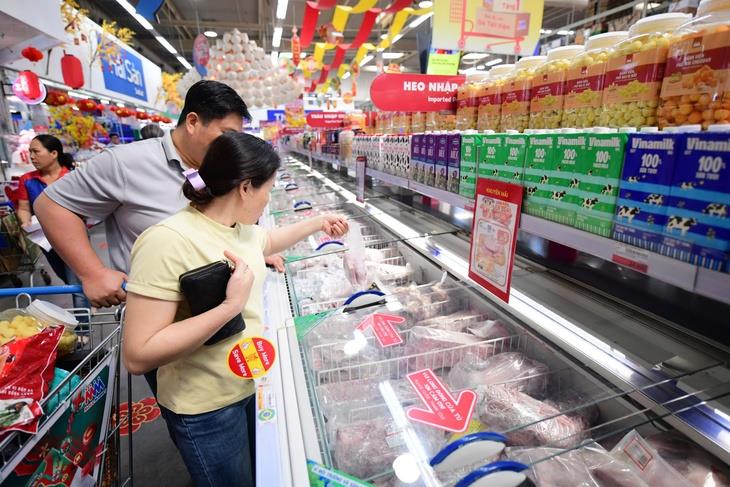How should Vietnam respond to US reciprocal tariffs?

Balancing relationships and maintaining policy consistency to avoid unintended negative consequences on other partners is of paramount importance.
"Just had a very productive call with To Lam, General Secretary of the Communist Party of Vietnam, who told me that Vietnam wants to cut their Tariffs down to ZERO if they are able to make an agreement with the U.S. I thanked him on behalf of our Country, and said I look forward to a meeting in the near future," U.S. President Donald Trump posted on social media on April 4 - a strikingly positive signal following his announcement of global reciprocal tariffs.
The phone call underscored the Vietnamese leadership's agility and prompt response in addressing a challenge with potentially significant implications for the nations development.
The world was stunned. In the U.S. alone, the stock market lost US$6 trillion in just two days more than 20 percent of the country's GDP and 15 times Vietnams GDP.
In this urgent situation, to secure the most favorable tax rate and conditions from the U.S. while maintaining sound relationships with other partners Vietnam may consider the following steps:
First, compile and prepare the most comprehensive data possible, especially regarding the accuracy and completeness of two-way trade figures (including services).
For example, with tens of thousands of Vietnamese students studying in the U.S. each year, America effectively 'exports' billions of dollars' worth of educational services. Other service sectors also represent substantial value.
In addition, it is important to break down the value of goods Vietnam ships to the U.S. to identify the share contributed by American companies within global value chains.
Information on U.S. businesses operating and profiting in Vietnam, as well as the goods and services Vietnam could offer in exchange for those it currently exports to the U.S., is also essential.
Second, review all current policies applied to foreign-invested enterprises, especially those involving American companies.
Vietnam should examine taxes and non-tariff regulations, eliminating or adjusting those that may be viewed negatively by the U.S., in a way that follows a reasonable timeline.
Outstanding issues in bilateral economic and trade relations, especially those raised by the U.S., should be addressed as soon as possible.
Third, increase purchases of U.S. goods and services and expand investments in the U.S., particularly in strategic areas that support Vietnams long-term development.
Key sectors include education and research. Vietnam should send more students and launch additional collaborative research programs with American institutions.
These efforts will help Vietnam implement its national strategy for scientific and technological advancement and innovation, as outlined in Politburo Resolution 57.
Moreover, boosting investment in the U.S. is both a strategic and necessary step.
Fourth, review domestic policies to ensure the economy operates as a true market economy.
This would achieve two goals at once: reduce grounds for the U.S. to classify Vietnam as a non-market economy, and promote a fairer, more competitive playing field that strengthens local private enterprises.
Fifth, what happens at the negotiating table is critical.
Vietnam must select its most capable and strategic team for these talks, supported by a well-prepared group behind the scenes, armed with complete information and sharp analysis to back those on the 'frontline.'
Finally, while the U.S. is a key partner, other partners are equally vital to Vietnam's growth.
Thus, maintaining balanced, coherent policies that avoid unintended consequences from any single policy or relationship is essential.
This is the art of 'bamboo diplomacy,' built on the principle that national interests must come first.
* The Vietnamese version of this article was written by Dr. Huynh The Du, a faculty member at the Fulbright School of Public Policy and Management, Fulbright University Vietnam. His main areas of teaching and research include urban economics, infrastructure development, and banking and finance.
(2025/04/08-11:23)
Tuoi Tre
- 04/17 18:07 Actress-run shellfish spot Oc Khanh a Ho Chi Minh City favorite
- 04/17 17:55 Ho Chi Minh City's healthcare faces staff shortage, calls for policy reform to boost investment
- 04/17 17:42 Vietnam's largest submarine cable operational
- 04/16 17:57 Ho Chi Minh City battles plastic waste in a growing global crisis
- 04/16 17:44 Vietnam signs export protocols for chili, passion fruit, bird's nest with China
- 04/16 17:32 Ho Chi Minh City plans to reduce communes, wards to 102 units
- 04/15 17:55 Stalled ODA traffic project in Vietnam's Can Tho causes transport disruptions
- 04/15 17:43 Young people in Ho Chi Minh City catch trends in celebration of Reunification Day
- 04/15 17:33 China willing to increase agricultural imports from Vietnam: top leader Xi Jinping
- 04/14 17:22 Chinese Party General Secretary, President Xi Jinping's visit to Vietnam: High expectations from both sides
- 04/14 17:19 Vietnam police dismantle major counterfeit milk powder operation targeting vulnerable consumers
- 04/14 17:16 Chinese Party General Secretary, President Xi Jinping arrives in Hanoi for state visit
- 04/14 11:04 A joyous 50th anniversary in Ho Chi Minh City
- 04/14 10:55 What to expect from Chinese leader Xi Jinping’s upcoming visit to Vietnam
- 04/14 10:50 Vietnam seeks US tariff exemptions on key agricultural exports
- 04/14 10:47 Ho Chi Minh City gears up for Reunification Day celebrations with military parade, 30 fireworks shows
- 04/11 22:13 Vietnam PM establishes negotiation team to address US reciprocal tariff
- 04/11 22:11 Young visitors flock to Da Nang’s 3D art museum for eye-popping fun
- 04/11 22:00 Top Chinese leader Xi Jinping to pay state visit to Vietnam next week
- 04/11 10:02 There is something fishy about Vietnamese cuisine
- 04/11 09:56 Tuoi Tre News: A journey of growth, trust, and new beginnings
- 04/11 09:49 A new trade landscape takes shape given US tariffs













